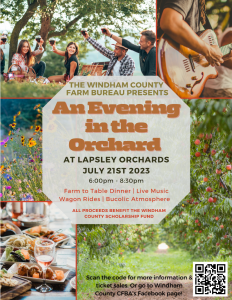American Farmland Trust 2024 New England Farmer Microgrants Program Open on October 1st
Apply by November 21, 2024
In 2024, NEFMP will consist of two separate funding opportunities: the Western New England Regenerative Livestock Farming grants (RLF) and the Farmland Access, Succession, and Transfer Support grants (FAST). Both grant opportunities will now be open to prior NEFMP awardees. Applications for both funding opportunities close on November 21st. To apply or review the eligibility guidelines, visit: https://farmland.org/new-england-farmer-microgrants-program/




